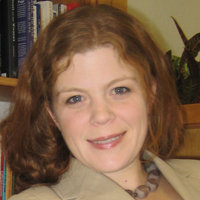| Recognizing the Whole Student: Balancing Family and Academia |
![PDF-NOTE: Internet Explorer Users, right click the PDF Icon and choose [save target as] if you are experiencing problems with clicking.](http://rsnonline.org/templates/rsntemplate-smallmasthead/images/pdf_button.png) |
 |
Ann W. Duncan, Goucher College, and Shayna Sheinfeld, McGill University
As media coverage and recent popular publications on the subject show, the struggle to balance family and career continues to prove difficult and, at times, contentious for many individuals. Academia presents both a flexible career path with the potential to allow for the successful balance of career ambitions and family life and a fertile ground for the sacrifice of the latter for the sake of the former. Examination of this subject by those within academia frequently focuses on often unstated expectations for faculty members in terms of the size of their family and the timing of pregnancy and childbirth. Books such as Mama, PhD: Women Write about Motherhood and Academic Life (Rutgers University Press, 2008) and recent articles in the Chronicle of Higher Education discuss the ways in which changing the culture of the academic world, adding flexibility to tenure, teaching, advising, and committee responsibilities may help academics with various family responsibilities lead more whole and balanced lives. However, such discussions leave graduate students out of the equation despite the fact that this segment of the academic community is often of prime child-bearing age and enjoys even less flexibility, financial security, or authority than their faculty counterparts. These realities demonstrate that recognizing the particular challenges of parenthood in graduate school and providing student parents with support must be the first step in fostering a healthy environment for both the current and the next generation of scholars. This conviction arises from our own experiences as mothers and graduate students:
Though I have slept very little over the past several years and have often envied the seeming simplicity of my childless colleagues’ lives, through graduate school my children provided me with a perspective on my work and career that deepened my experience, maintained my sanity, and honed my ability to manage multiple responsibilities. Currently, I feel incredibly lucky to be working at an institution that recognized that this constant struggle to balance family and academic life has enriched and inspired my research and made me a better teacher and community member. My decision to teach at a small liberal arts college resulted not only from a desire for a more intimate academic community but also a reflection that such an environment is often more conducive to living a balanced life. The lack of dialogue about what has been such an important aspect of both of our graduate school experiences led us to seek an opportunity to discuss these issues with other graduate students. Such an opportunity arose at the 2009 Annual Meeting, when we facilitated two graduate student roundtables on the subject of balancing work and family life in graduate school. The female and male graduate students in attendance discussed the difficulty both of making the decision as to when (or even whether) to expand one’s family while in graduate school and negotiating between graduate school and family life once the decision has been made. Questions centered on the question of balance: Is it possible to do both, and to do both well? Other topics of discussion included the perceived unfairness of male versus female graduate students with families, especially in relation to the physicality of a woman’s role in childbearing and infant feeding. Both of us entered these discussions with the expectation that while our own experiences made us aware of the particular challenges, limitations, and rewards inherent in such a journey, we were there as facilitators, not as wisdom-givers. However, in the discussions and conversations that continued throughout the conference, we were surprised and alarmed at the confusion, uncertainty, and fear we saw and heard among many of those women and men contemplating or experiencing impending parenthood. These students wanted families; they wanted lives that extended beyond their academic world. Yet, they were also committed to continuing their academic progress and maintaining the respect and confidence of their advisors, professors, and peers. Their fear arose from their lack of role models and a lack of clarity regarding how such a decision would affect their funding or insurance, or how others might perceive their choice and its effect on their academic progress and commitment. The lack of policies and the uncertainness of the process resulted in a culture where each student parent became an exception rather than one version of the norm. In the spirit of the Status of Women in the Profession Committee’s work to ensure that all faculty be allowed and encouraged to be whole people with full lives that extend beyond the academic campus, we encourage graduate programs and individual graduate advisors to consider some of the following policy and practice suggestions:
While discussions about appropriate policies and expectations for faculty with families continue, we must also realize that graduate students are not even provided with the basic legal rights afforded faculty, due to their status as students. Institutional clarity and supportive policies make often-vulnerable students better able to balance life and their emerging academic career without fear of discrimination or other negative repercussions. Though raising a family during graduate school requires constant planning and renegotiation of time, energy, and resources, both of us have found that it is a satisfying, albeit challenging, endeavor. Though parenthood occupies your time, emotional life, financial resources, and energy in a way that few other life experiences can, it also provides a unique and invaluable perspective to one’s work and to the sometimes grueling and often stressful academic career track. With support from professors, departments, and universities, having a family and attending graduate school do not have to be two exclusive enterprises. Instead, graduate school can be the place in which young academics that choose to have families can begin the difficult but important task of leading a balanced life. ResourcesCoussons-Read, Mary. “The Family Track.” Chronicle of Higher Education (3 April 2009). Evans, Elrena, and Caroline Grant, eds. Mama, PhD: Women Write about Motherhood and Acamdemic Life. Piscataway, NJ: Rutgers University Press, 2008. June, Audrey Williams. “Grad Students Think Twice about Jobs in Academe.” Chronicle of Higher Education (15 January 2009). MacDonald, Joan Rmage, and Maura E. Sullivan. “Mothers in the Field.” Chronicle of Higher Education (24 October 2008). Mason, Mary Ann. “Is Tenure a Trap for Women?” Chronicle of Higher Education (22 April 2009). ________. “Role Models and Mentors.” Chronicle of Higher Education (25 March 2009). ________. “Why So Few Doctoral-Student Parents?” Chronicle of Higher Education (21 October 2009). Wilson, Robin. “Is Having More than Two Children an Unspoken Taboo?” Chronicle of Higher Education (30 June 2009). ________. “How She Does It: Tips from the Trenches.” Chronicle of Higher Education (30 June 2009). |


 Ann W. Duncan is assistant professor of religion at Goucher College in Baltimore, Maryland, and specializes in American religious history, intersections between religion and public life, and religion and the social sciences. Her past research, presentations, and publications have focused on religion and politics, American Christianity and wartime, American Civil religion, and religious understandings of motherhood and the family. She is the coeditor of the three-volume set Church-State Issues in America Today (Praeger, 2008). Duncan’s current project, “From the Mother of God to the Mommy Wars: Motherhood and American Christianity,” integrates interviews with Catholic, Quaker, and Mormon women with historical and theological perspectives on Christian and American motherhood. She holds a BA from Duke University and a MA and PhD (expected May 2010) from the University of Virginia.
Ann W. Duncan is assistant professor of religion at Goucher College in Baltimore, Maryland, and specializes in American religious history, intersections between religion and public life, and religion and the social sciences. Her past research, presentations, and publications have focused on religion and politics, American Christianity and wartime, American Civil religion, and religious understandings of motherhood and the family. She is the coeditor of the three-volume set Church-State Issues in America Today (Praeger, 2008). Duncan’s current project, “From the Mother of God to the Mommy Wars: Motherhood and American Christianity,” integrates interviews with Catholic, Quaker, and Mormon women with historical and theological perspectives on Christian and American motherhood. She holds a BA from Duke University and a MA and PhD (expected May 2010) from the University of Virginia. Shayna Sheinfeld is a PhD candidate at McGill University in Montréal, Québec, in the field of early Judaism. Her area of research lies in the apocryphal and pseudepigraphic texts of the second temple and post-temple periods, with an emphasis on apocalyptic texts. Sheinfeld is especially interested in the development of social history and Jewish identities of the period, including early Christianity and Rabbinics. In addition, she conducts research within Jewish studies, most specifically on women and their role in Judaism. She is the current coeditor of Arc, the journal for the faculty of religious studies at McGill University. Sheinfeld holds a BA in religious studies from DePaul University and a MTS in Scripture, interpretation, and Jewish studies from Harvard Divinity School.
Shayna Sheinfeld is a PhD candidate at McGill University in Montréal, Québec, in the field of early Judaism. Her area of research lies in the apocryphal and pseudepigraphic texts of the second temple and post-temple periods, with an emphasis on apocalyptic texts. Sheinfeld is especially interested in the development of social history and Jewish identities of the period, including early Christianity and Rabbinics. In addition, she conducts research within Jewish studies, most specifically on women and their role in Judaism. She is the current coeditor of Arc, the journal for the faculty of religious studies at McGill University. Sheinfeld holds a BA in religious studies from DePaul University and a MTS in Scripture, interpretation, and Jewish studies from Harvard Divinity School.

